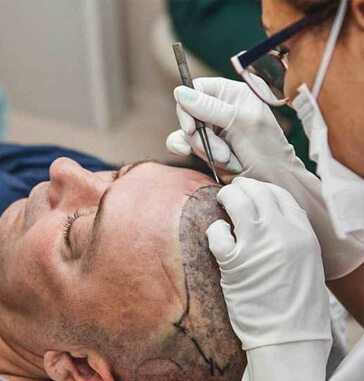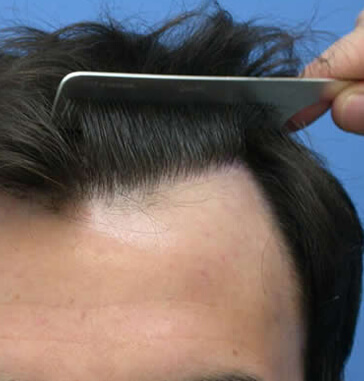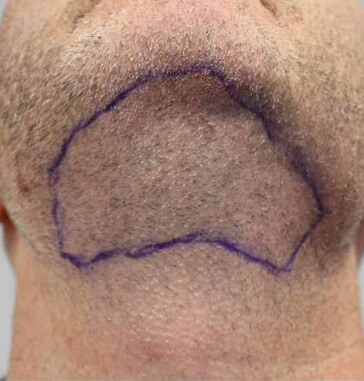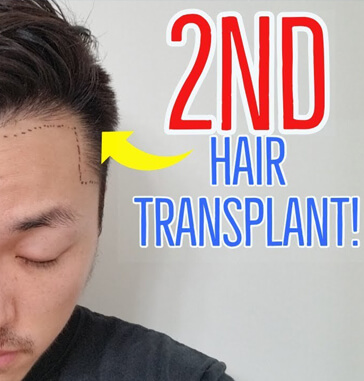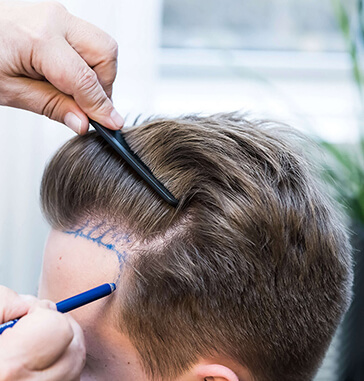Bleeding in the donor area after a hair transplant surgery is considered to be a possible complication following the surgery. Even though it is not a common side effect, it may occur due to a variety of reasons. There are two main types of a hair transplant procedures: FUT and FUE. FUT is an older method as compared to FUE and your doctor will have to cut behind your neck to collect hair follicles. However, your doctor does not need to cut FUE and they will just collect the hair follicles directly from your head so they will only have to make small incisions during graft collection and transplantation phases. So it is more likely that you are going to bleed after FUT as it needs cuts. The risk of bleeding still applies with FUE however it is less likely as it only needs small incisions.
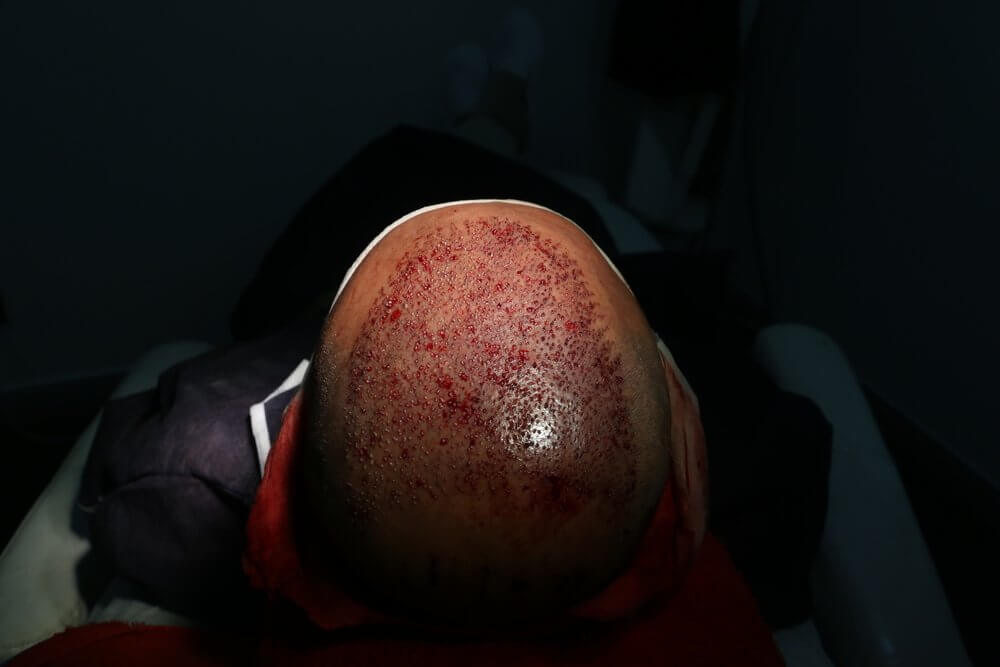
Why Does Bleeding Occur After Hair Transplant?
Bleeding may occur either just after the hair transplant procedure or just a few days later. So the timing of bleeding is directly related to the root cause of this problem. Here are the possible causes of bleeding after a hair transplant surgery:
- If you have blood coagulation issues, your head may bleed right after the surgery. However, this kind of bleeding is not seen so often because your doctor will run the necessary tests and advise you to quit some medications that may lead to blood coagulation issues one week before the surgery. Also some supplements such as vitamin E and herbal teas, grapefruit can cause blood thinning, which can lead to uncontrolled bleeding.
- You may hit your head anytime following the surgery. However, the first week is when your newly transplanted hair follicles and surgical areas are most sensitive. So anytime during the first week following the surgery, your head may bleed if it is hit. This type of bleeding is considered risky as it may harm the hair grafts that are trying to hold onto the scalp.
- If you are a heavy drinker or smoker you likely experience complications including bleeding after a hair transplant surgery. Your doctor will most probably ask you to stop drinking and smoking two weeks before the surgery; however, if you do not comply with the rules, you are prone to such complications.
- Scabs can form during the healing process of your scalp. These scabs can get very itchy in the recovery period and if you cannot resist this feeling and scratch your scalp, it is quite likely that your scalp will bleed.
- High blood pressure after a hair transplant is another factor that leads to bleeding. Your doctor will probably ask you to avoid heavy exercises that cause an increase in blood pressure. However, if you keep on heavy exercises and sex during the first month following the hair transplant procedure, your blood pressure can go up and you may end up bleeding.
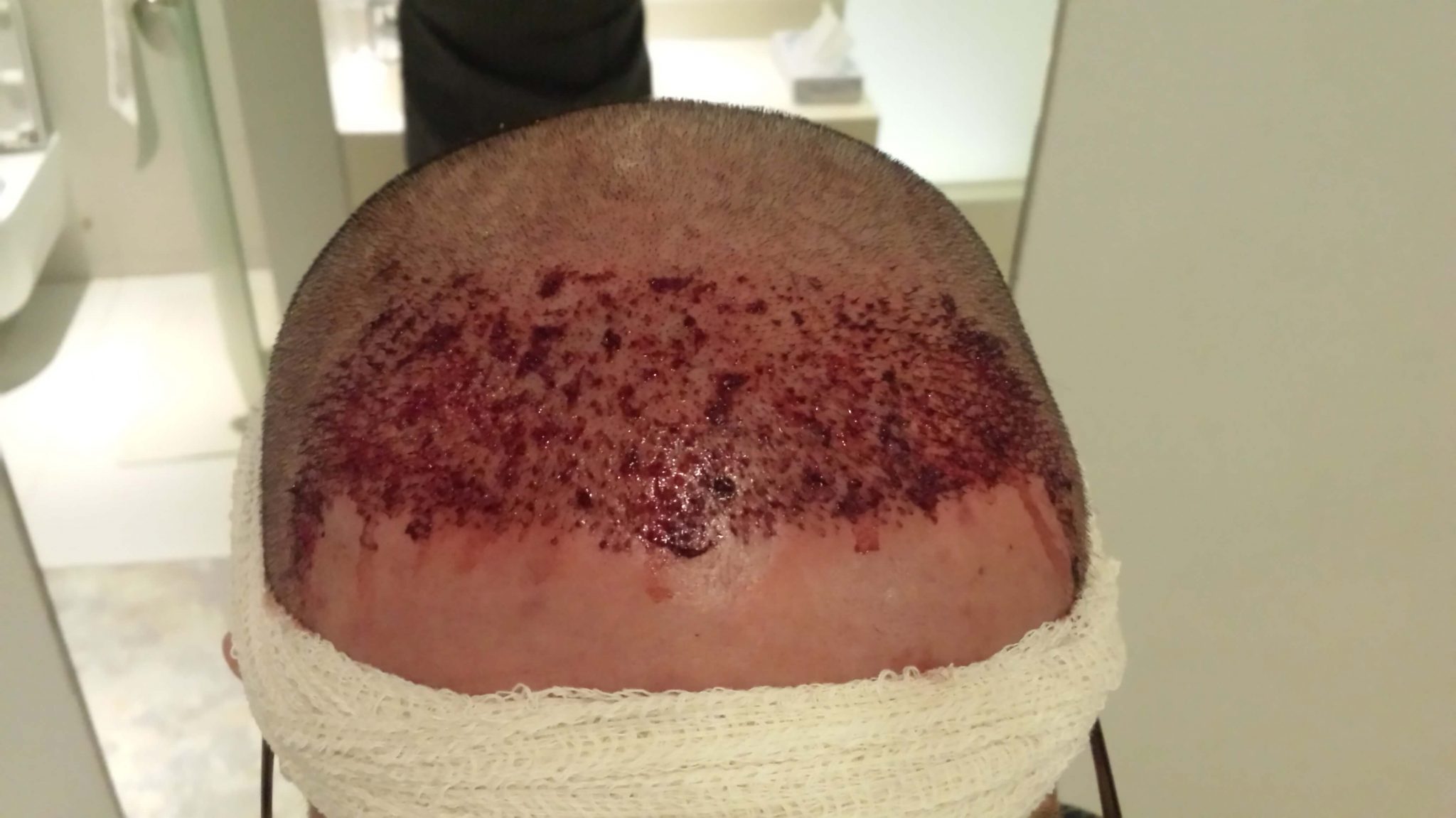
How To Prevent And Stop Bleeding After A Hair Transplant Procedure?
Here are the tips to prevent and stop bleeding after a hair transplant procedure:
- Avoid heavy exercises a month after hair transplant surgery.
- You should never scratch your head until your scalp completely heals.
- Never apply pressure on the surgical areas.
- Do not rub your head while washing your hair.
- If you have blood clotting issues, let your doctor know about it at least one week before the surgery.
- Avoid and blood thinners after hair transplant, herbal teas, vitamin E, and supplements.
- Always follow your doctor’s instructions and recommendations before and after surgery.


